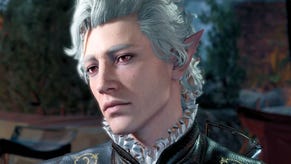Baldur's Gate 3's new epilogues wrestle fan service and narrative weight
Spoilers!
Baldur's Gate 3's newest patch is the latest to address not just bug fixes or the occasional glitchy animation, but to bring in new additions to the game in response to popular demand. Along with both a customisable difficulty setting and a bragging-rights, one-save-file only mode, the update brings with it new epilogues to see off the characters you've spent so long getting to know. With the vast majority of players rolling an original character - rather than playing as one your companions, as is the recommended choice in Larian's previous game, Divinity: Original Sin 2 - Baldur's Gate 3 has earned a fan base that's deeply attached to their characters, and its new endings are emblematic of how Larian intend to interact with them.
When I first played it back in the summer, the game's ending was the culmination of an act that couldn't quite live up to the rest of its promise. After tens of hours of role-playing a character and their companions in a complex and reactive world, interesting choices dwindled - or at least the ones that weren't about the best way to approach a combat scenario. My companions fell quiet, and suddenly the biggest, most dramatic choices of the entire game - which will be impossible not to spoil, so consider that a big spoiler warning for Baldur's Gate 3 endings in itself - felt arbitrary.
At the climax of the game, you discover that only a mindflayer can successfully wield the netherstones you've fought to gather and overwhelm the netherbrain. Immediately, your choice appears to be either trust your dubious ally, the Emperor, with them, or become a mindflayer yourself, the very fate you set off in the first place to avoid. A sacrifice, or a leap of faith.
In the moment, it feels like a huge, weighty narrative choice at the end of a game filled with them. But the lack of reaction - and the fact that the heavily-breadcrumbed third option takes you to functionally the same dilemma - leaves it feeling more like a mechanical one. Do you want mindflayer abilities, or do you want it to be the other guy?
Regardless of what decision you make here, you progress to - and through - the final battle without much acknowledgement. Gale's arc, too, is wrapped up in the literal final moments of the game, moments before Karlach lives or dies and in the same breath that Astarion flees from sunlight, and Lae'zel flies off on a dragon. There's a sudden and for Baldur's Gate 3, out of character, weightlessness that feels stark after role-playing with close to the same level of creative freedom you usually have at the table.
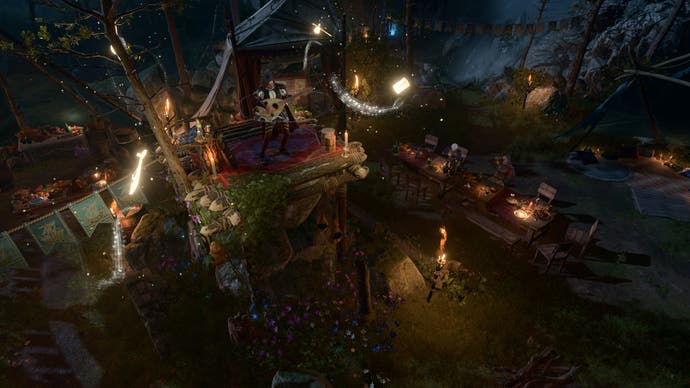
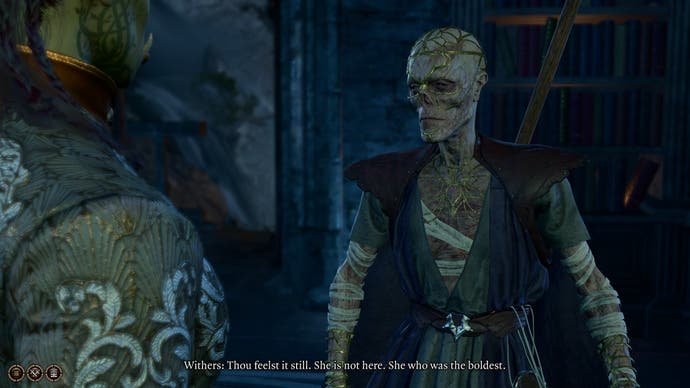
The new epilogues in Patch 5 don't change anything that was already part of the ending - but what they do is give both these major choices, and the running impacts you had throughout the game, space for a meaningful sense of continuity. Six months after your partings at the docks, Withers summons everyone back to camp for a party. It feels like the setting for a fix-it fanfiction - and I'm sure in several places it is.
It's an epilogue that aims to please, and one that will test your tolerance for fanservice and meta-jokes. If you want to hug your friends, there are new hugs. If you want to wear a really fancy outfit, there's a chest full of dyes and partywear. If you want to hear ambient banter about the time everyone settled down for the night and ate an improbable meal out of the rations they were auto-assigned, you're in luck. Music is playing, Halsin is dad dancing, and everyone is happy to see you.
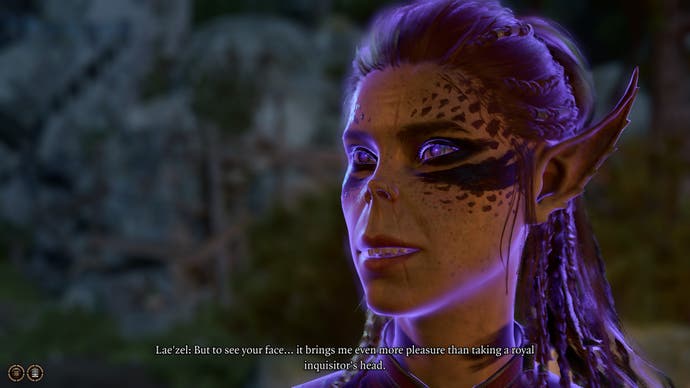
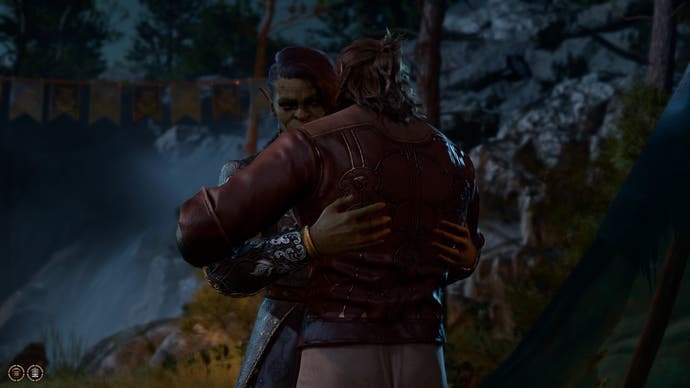
![Screenshot of Baldur’s Gate 3, showing Shadowheart looking fondly up at the player character [Don’t use this one for a hero image, her haircut/colour is a spoiler]](https://assetsio.gnwcdn.com/Baldur_s-Gate-3-Epilogue---Pre-Kiss.jpg?width=690&quality=75&format=jpg&auto=webp)
This can, at times, stretch your suspension of disbelief. As the epilogue rolls out only moments after your partings on the docks, the more painful or bittersweet goodbyes are immediately glossed over. Lae'zel, for instance, swore she'd never forget everything I cost her - but now she greets me as her dearest friend. In the save where I was a mindflayer, Shadowheart seemingly ended our romantic relationship because she didn't want to return to a life of hiding in the shadows - until we enter the party, and it turns out we've been adventuring together this whole time.
There are, of course, 'bad' endings available that play out in the epilogue - especially for the Dark Urge - but you have to be very intentional about your choices to get them. The horror there is that validating and gratifying outcome in itself. As someone who played a character who mostly meant well, but had to make compromises however, it all feels a little too easy to show up at the party and discover that, actually, everything turned out absolutely fine, and there was never really a cost - for me or for anyone else.
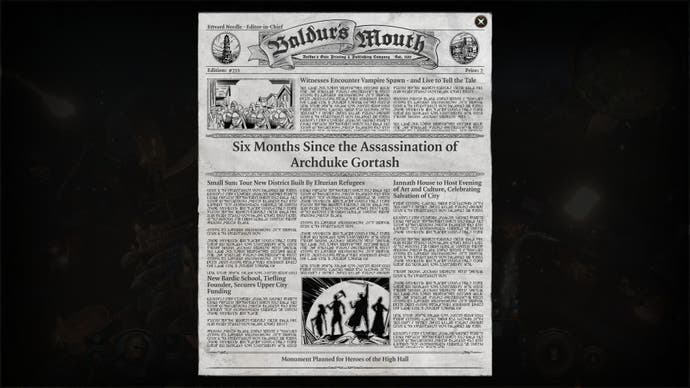
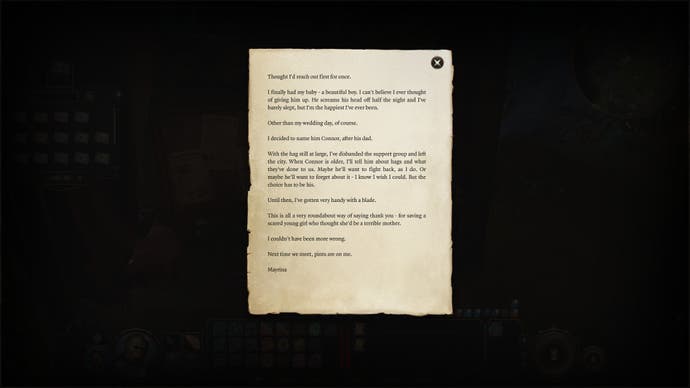
All that said, the strength of these epilogues is that those big, last-minute decisions have a significant impact on what's otherwise a pretty fluffy affair. The camp party where I can have a quiet conversation with Withers remembering Karlach is an entirely different party to the one in a save where Karlach and I went to the hells together. That choice changes conversations with everybody, with the gang now thrilled to see the two of you back for now. And maybe being a mindflayer doesn't get in the way of romance, but time and space is given to how you might feel about living in a different body, having to adopt a new lifestyle, and how a diet of brains is going to limit your access to party food and polite chatter.
Choices made are seen by the game - even inaction, in places - and while some narrative weight falls away with the addition of happier, more fan-friendly postscript, in other places it brings narrative weight back, where it had been previously lost. In a recurring questline with a hag, I rescued a young woman from her twice - but never killed the hag for good. In my journal, it's just an unfinished quest - but in a thank-you letter from Mayrina in the epilogue, she has the rest of her life to live.
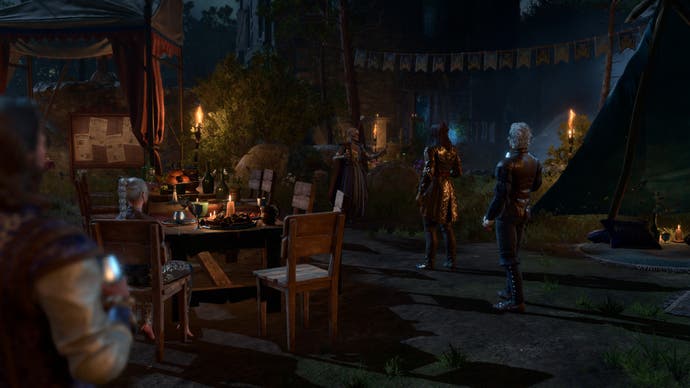
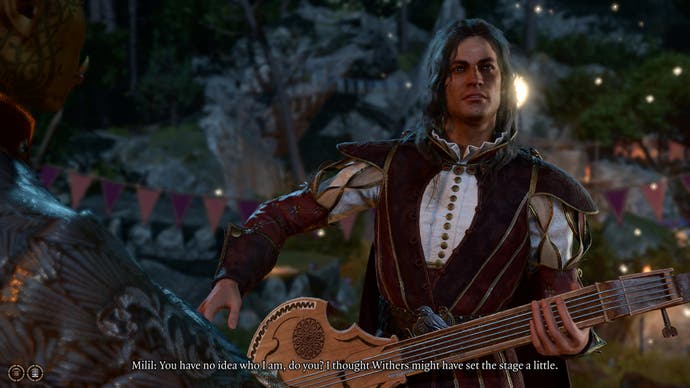
.jpg?width=690&quality=75&format=jpg&auto=webp)
There's an extent to where Larian's success is dependent on fan service, if broadly defined - as a studio funded by its previous successes and Early Access sales, would they have ever become the studio they are now without the good will that comes from shaving the cat? It's not a bad impulse to want to soothe ill-will from fans, but when a game is patched with what feels like its own fix-it fan fiction, it makes me wonder about the closing distance between fans and a creation: why is the response to a disliked, ambiguous, or challenging ending a requirement that it be fixed, instead of processing those feelings of dislike in critique, reflection, transformative fan-made works, or myriad other ways that aren't directly addressed to developers?
While these epilogues invite me to commit seeing newer characters through to their end, I have to wonder what complexity is exchanged for these more fan service-y moments - and what's lost when that gap between creative intent and fannish delight becomes smaller and harder to distinguish. Some moments of nice denouement aside, it's a direction Larian seems increasingly committed to with each patch, and with the expansion hints dropped in the epilogues, I can only wait to see what will come next.








